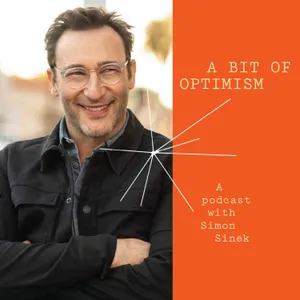Podcast Summary
Exploring Stoicism: A Practical Philosophy for Contentment and Fulfillment: Stoicism is a philosophy that empowers individuals to control their thoughts and responses, leading to contentment and fulfillment. Invest in the best translation for a deeper understanding, focusing on what's within your control.
Stoicism is a practical philosophy focused on controlling one's thoughts and responses to the world around them. It's a recipe for contentment and fulfillment, favored by people in various fields such as politics, arts, and military. Ryan Holiday, our guest on The Knowledge Project, was introduced to stoicism through Epictetus' writings at the age of 19. He was drawn to the unique historical document that offered radical differences from what he learned in school and self-help books. The best way to read philosophy, according to Ryan, is to invest in the best translation available, like the Gregory Hayes translation of Epictetus' works. Stoicism is not just a competitive edge but a path to living a good life with excellence. It's about accepting that you don't control the world around you but focusing on what you can control – your thoughts and responses.
Seneca: A Complex Figure in Roman History: Renowned philosopher Seneca's life defied simple labels as he was a powerful advisor, a renowned playwright, and a prominent Stoic philosopher, facing challenges like exile and mentoring Nero, leaving a legacy of wisdom and inspiration.
Seneca, a famous Roman philosopher, is a complex figure whose life and works continue to intrigue us. He was a powerful political advisor, a renowned playwright, and a prominent Stoic philosopher. Seneca's letters, particularly the one to his mother after his exile, provide insight into his philosophical beliefs as well as his personal experiences. Despite his wealth and influence, Seneca faced hardships, including exile and mentoring the deranged emperor Nero. His complicated life challenges the simplistic labels we often apply to people and serves as a reminder to look beyond headlines and sound bites to understand the complexities of individuals. Seneca's works, particularly his letters, continue to be a source of wisdom and inspiration, making him a favorite among Stoic philosophers. His life story also highlights the importance of resilience and finding meaning in adversity.
Embracing unconventional choices for personal growth: Making unconventional choices can lead to significant personal growth and success, even if they seem risky or overwhelming. Stay committed to projects and be open to new opportunities to compress your learning curve and accelerate your professional development.
Sometimes making unconventional choices in life, even if they seem risky or overwhelming, can lead to significant personal growth and success. The speaker shared how dropping out of college at a young age to pursue opportunities with Tucker Max, signing YouTube clients, and working as a research assistant for Robert Greene, ultimately shaped his career in marketing, writing, and advising. He acknowledged the challenges of juggling multiple projects at once but emphasized the benefits of compressing his learning curve and skipping ahead in his professional development. The speaker also reflected on the importance of staying committed to projects and being open to new opportunities, even when they add to an already busy schedule. Additionally, the speaker drew parallels between his experiences and those of historical figures like Seneca, emphasizing that the choices we make, even those that may be controversial or difficult, can have profound impacts on our lives.
Considering what truly makes us happy when evaluating opportunities: It's essential to prioritize personal fulfillment over financial gains and be mindful of what we truly value when considering opportunities.
It's essential to consider the opportunity cost and prioritize what truly makes us happy when evaluating opportunities, even if they come with financial gains. The speaker shares how they learned this lesson the hard way by overcommitting themselves and missing out on personal fulfillment. They emphasize that saying no to certain opportunities can be challenging, especially when it comes to money, but it's crucial for maintaining a balanced life and producing lasting work. The speaker also references the allegory of the ant and the cricket, suggesting that finding the right balance between preparation and enjoyment is crucial. Overall, the takeaway is to be mindful of what we value and prioritize, even if it means turning down opportunities that may seem attractive financially.
Learning from a mentor's wisdom and experiences: Seeking out a mentor can significantly impact personal growth and development by inspiring new perspectives and teaching valuable skills.
Mentorship and guidance from experienced individuals can significantly impact personal growth and development. The speaker shared his experience of working with Robert Greene, who not only inspired him to become a writer but also taught him valuable research and thinking skills. Through this apprenticeship-like relationship, the speaker was assigned to read various books and contribute ideas, leading him to discover new perspectives and knowledge. This experience was transformative, shaping the way he approaches research and writing to this day. The speaker emphasized that this relationship was instrumental in his professional journey and encouraged individuals to seek out mentors and learn from their wisdom and experiences.
Using note cards for research and writing: Note cards can help manage and build upon research by allowing for efficient organization and access to information through physical or digital storage systems.
Using a note card system for research and writing can be an effective and manageable way to organize and build upon knowledge. The speaker described how they started using note cards to collect and categorize information from various sources, such as books and articles. This method allowed them to focus on individual sections or themes, making the research process more manageable. They also emphasized the importance of having a physical system for storing and backing up the note cards to prevent loss of research. The speaker shared their experience of using a cropper hopper, a physical storage system for note cards, but also mentioned that they have since started scanning and backing up their note cards digitally. This method can help writers and researchers to efficiently gather, organize, and access information for their projects.
The Power of Physical Note-Taking: The speaker prefers handwritten note cards over digital methods for better understanding and memory retention, and for writing books.
The speaker values the physical and tactile process of note-taking and writing, using note cards, over digital methods like Evernote. He believes that the act of writing things down longhand and manipulating the notes physically helps him remember and understand the information better. He also mentions that he doesn't find the lack of searchability in his system to be a problem, as he can still locate his notes through other means. When it comes to writing a book, he starts with an idea, does research, and organizes his notes into note cards, which he arranges and rearranges as needed. He acknowledges that the process of writing and researching for a book is ongoing and that the start date can be hard to pinpoint. Overall, the speaker emphasizes the importance of the physical and tactile process of note-taking and writing for him, and his confidence in his ability to manage his notes without the need for a searchable system.
Breaking down writing a book into manageable chunks: Focusing on smaller writing tasks and linking them together can help writers make progress towards completing their book, while editing is an essential part of the process.
Writing a book is a daunting task, and breaking it down into manageable chunks can make the process less demoralizing and more productive. The speaker shares his experience using a note card system to write his intro and then discrete pieces of the book, using Google Docs for each section and combining them later. He emphasizes the importance of not trying to write the entire book at once, as it can be overwhelming and ineffective. Instead, focusing on smaller tasks and linking them together later can help writers make progress towards their goal. The speaker also mentions the importance of editing as part of the writing process and the benefits of using different tools like Google Docs and Microsoft Word at different stages of the project. Overall, the key takeaway is that breaking down a large project into smaller tasks and focusing on those tasks one at a time can help writers stay motivated and make progress towards completing their book.
Match energy to work and allow breaks: Find balance between focused work and self-care, prioritize urgent tasks, set boundaries, and be intentional with time and energy.
Effective productivity involves matching your energy and intensity to your work, but also allowing for breaks and switching tasks to avoid burnout. The speaker shares his personal routine of writing in the morning, taking breaks for exercise or other tasks in the afternoon, and responding to emails promptly while also prioritizing urgent and important messages over less pressing ones. He also emphasizes the importance of setting boundaries and not feeling obligated to respond to every request, especially those that may not truly require your time or expertise. Overall, the key is to find a balance between focused work and self-care, and to be intentional about how you spend your time and energy.
Setting Expectations and Adding Friction for Efficient Communications: Proactively setting clear expectations and adding friction to communication processes can save time, improve efficiency, and lead to growth. Prioritize your time and energy, and be clear about what you're willing to offer and what you expect in return.
Being proactive and setting clear expectations can save time and improve efficiency in professional communications. The speaker shares his experience of receiving numerous emails asking for advice or information, which he found to be time-consuming. He started adding friction to the process by asking people to print and mail lengthy documents instead of reading them via email. He also began charging for strategy sessions to ensure that his time and expertise were valued. By taking these steps, he was able to focus on providing high-quality advice and ideas, rather than spending time on lengthy exchanges or negotiations. This approach not only led to growth for his business but also provided relief by streamlining his workload. Ultimately, it's important to prioritize your time and energy, and be clear about what you're willing to offer and what you expect in return.
Valuing Your Time and Expertise: Recognize the worth of your time and expertise, charge accordingly, and filter out unserious clients.
It's essential to value your time and expertise, especially when running a business. The speaker shared his experience of conducting consulting sessions where he qualifies leads and charges a fee for his services. This approach not only helps him filter out unserious clients but also ensures he can make a living. He emphasized that his brain is his livelihood and he can't give it away for free. Moreover, he encouraged setting a fair price for your time and comparing it to the value it brings to clients. The speaker also shared that he uses his consulting sessions as an opportunity to stimulate his mind and get a walk in, making it a win-win situation. Seneca's quote, "let no man take a day of my life without giving me something worthwhile in return," perfectly summarizes this idea. Overall, the key takeaway is to recognize the worth of your time and expertise and charge accordingly.




